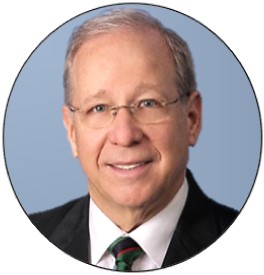- Investors are rational
- Markets are efficient
- Investors should design their portfolios according to the rules of mean-variance portfolio theory and do
- Expected returns are a function of risk and risk alone and beta is used to measure risk.
This Website Is For Financial Professionals Only
|
|
|
MEMBER REVIEWS
|
 |
|
William Desormeau, Jr.
|
|
It is not possible for me to overstate the cumulative value that Craig, Bob and Fritz have added for over 10 years to my investment advisory practice, as well as for personal and family financial planning. A4A gets my highest recommendation
|
 |
|
Lynn Najman, CFP®
|
|
I’ve subscribed to A4A since its inception, and always find it intellectually stimulating and on point. It’s one of the few CE solutions out there that doesn’t waste my time by pushing product or talking down to me.
|
|
|
| Pete Deacon, CPA, CFP® |
| A4A has had a profound effect on my business. Since 2009, I’ve relied on the consistent messaging and updates to run my business successfully. Being able to present the information from Bob, Fritz, and Craig's ongoing CE webinars has been a significant benefit. |
|
|
| Fredric Mayerson, MBA, PhD, CFP® |
| I've been a financial professional and professor of finance for 35 years and find Fritz Meyer and Robert Keebler to be among the most engaging, incredibly knowledgeable, and experienced presenters I’ve encountered. They deliver an extraordinary amount of information in an extremely interesting way — sequentially and developmentally, utilizing pedagogical tools and techniques that few possess. A4A to is the most consistently excellent CE program available. |
 |
| Ron Roge, MS, CFP® |
| I’ve been attending A4A many years because the CE classes are outstanding, and my time is valuable. Though I have over 35 years of experience, I’m always learning something new on A4A. I attend fewer conferences now because the CE is generally not advanced. If you want to learn from the best, in a faster, easier, and less expensive way, I highly recommend A4A. |
 |
|
John R. Day, CPA/PFS® |
|
I’ve been a member since 2011 and never miss the monthly webinars with Fritz Meyer. I appreciate Fritz’s independent views on the economy and markets and Bob Keebler keeps me updated on excellent tax planning ideas. A4A is a great value! |
 |
|
Norman Politziner, CFP |
|
I wouldn't miss a Fritz Meyer webinar unless my pants were on fire. I've relied on Andrew Gluck's knowledge systems --client communications and CE -- for two decades. It's simply the best solution for tax, financial, investment, and risk-management professionals.® |
|
|
|
Dan Hawley, CFP® |
|
A4A, for over a decade, has been a great resource for useful and accurate information and CE. A4A and Advisor Products are bargains for an advisory practice. |
|
|
Kevin Brosious, MBA, CFP®, CPA/PFS® |
|
I get CPA CE credit and CFP credit for the webinars. But not only that, the A4A content is terrific |
|
|
|
|
|
|












